10 Best Places to Live in New Zealand for Families
Thinking of moving to New Zealand? You’ve come to the right place.
This article is for families who want to move to New Zealand and want to know what their options are. We listed the top cities in New Zealand to live in for your reference.
We considered the following factors in deciding which cities are best to raise families.
- Population
- Number of families with kids
- Unemployment rate
- Safety index
- Average household income
- Average household monthly costs
- Median house price
- Median monthly daycare cost
- Number of daycares
- Number of parks
What are we waiting for? Let’s dive in!
1. Auckland
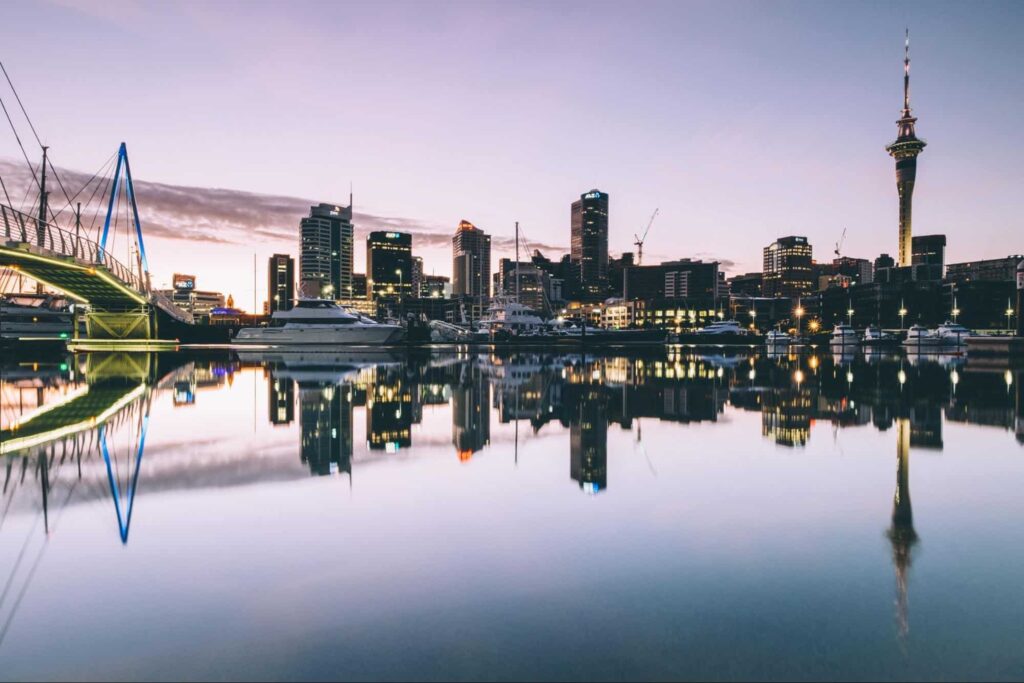
| Population | 1,571,718 |
| Unemployment rate | 4.1% |
| Safety Index | 52.42% |
| Median Income | $34,400 |
| Median Weekly Rent | $450 |
| Monthly Cost of Living | $5,961 |
| Median Internet Speed | 71.21Mbps |
Auckland is the largest city in New Zealand. It’s popular with immigrants because of its rich economic activity and diversity.
The drawback, however, is Auckland can have a higher cost of living. However, there are also more employment opportunities here.
Plus the average income here is sufficient for people with families.
When it comes to recreation, Auckland has a lot of beaches and regional parks you can go to on weekends.
If you have kids, there are plenty of activities for them here. There are museums, theaters, playgrounds, and so much more.
There are also a lot of gyms and personal trainers here for the gym buffs in the family.
We also noted that Auckland has a lot of great schools. In fact, two of the top 8 schools in New Zealand are in Auckland; namely Auckland University of Technology and University of Auckland.
For adults, there are a lot of volunteer opportunities here as well.
Plus, the locals are so friendly! So you’ll fit right in.
2. Wellington
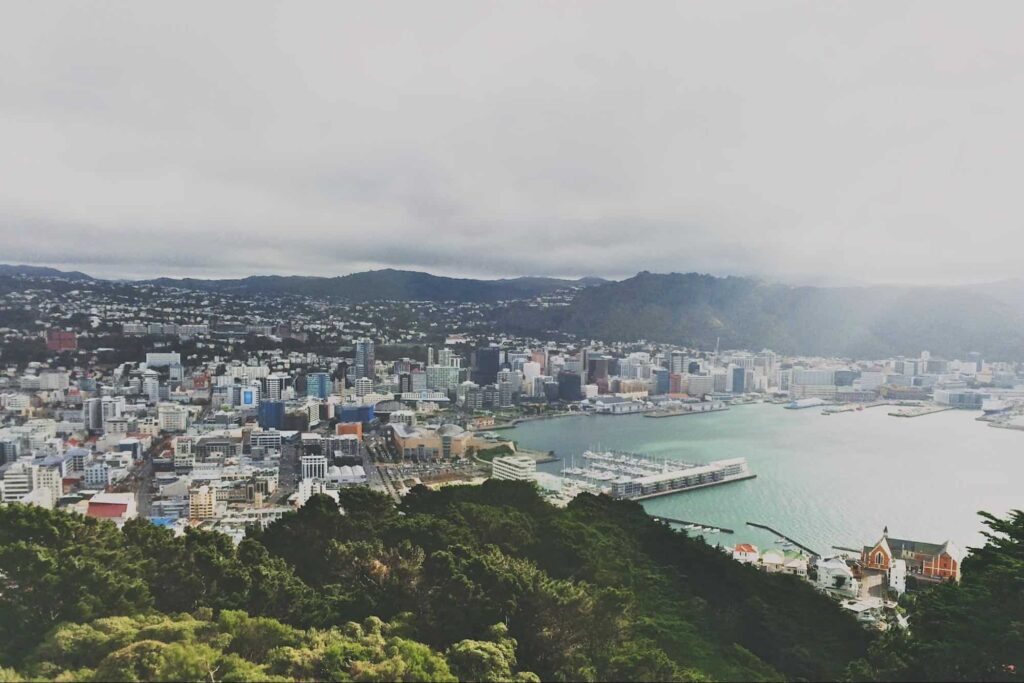
| Population | 506,814 |
| Unemployment rate | 4.4% |
| Safety Index | 69.72 |
| Median Income | $36,100 |
| Median Weekly Rent | $350 |
| Monthly Cost of Living | $5,253 |
| Median Internet Speed | 114.93Mbps |
Did you know that Wellington was voted the “coolest little capital in the world”? With its laidback Kiwi lifestyle and warm community, this city is definitely worth checking out.
Granted, the weather here can be much better but the amazing scenery makes up for it, we think. The city is perched on hills surrounding Wellington Harbor against the backdrop of the great Remutaka Ranges.
Also it’s a hub for all things culture and politics since it’s the home of some of New Zealand’s largest and oldest cultural institutions. Plus, we like that there are loads of career opportunities here.
It’s also very safe here, so you won’t have to worry about the kind of environment you’ll expose your children to if ever.
One of the best schools in New Zealand is also located here which is the Victoria University of Wellington.
Plus, if you love the gym, there are a lot of great fitness centers here.
3. Christchurch
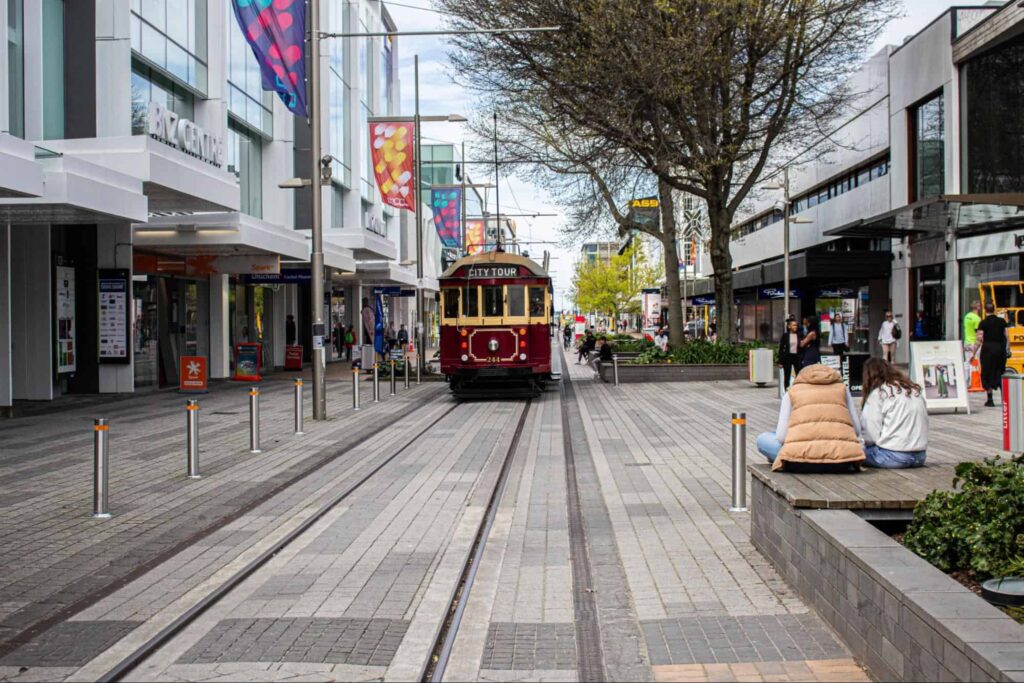
| Population | 369,006 |
| Unemployment rate | 3.8% |
| Safety Index | 57.83% |
| Median Income | $32,900 |
| Median Weekly Rent | $350 |
| Monthly Cost of Living | $4,906 |
| Median Internet Speed | 68.60 Mbps |
Christchurch is filled with state-of-the-art architecture, street art, and world-class restaurants. This city offers a lower cost of living and is the perfect place to explore the rest of the South Island while still living in the city – so you get the best of both worlds.
Employment opportunities for manufacturing, engineering, software, and medicine are plenty here.
As for the weather in Christchurch, it is pretty similar to the south of the United Kingdom, albeit with less rainfall.
You can visit its magnificent beaches during summer or go skiing during winter. This city is also home to one of the top universities in New Zealand: University of Canterbury.
4. Queenstown
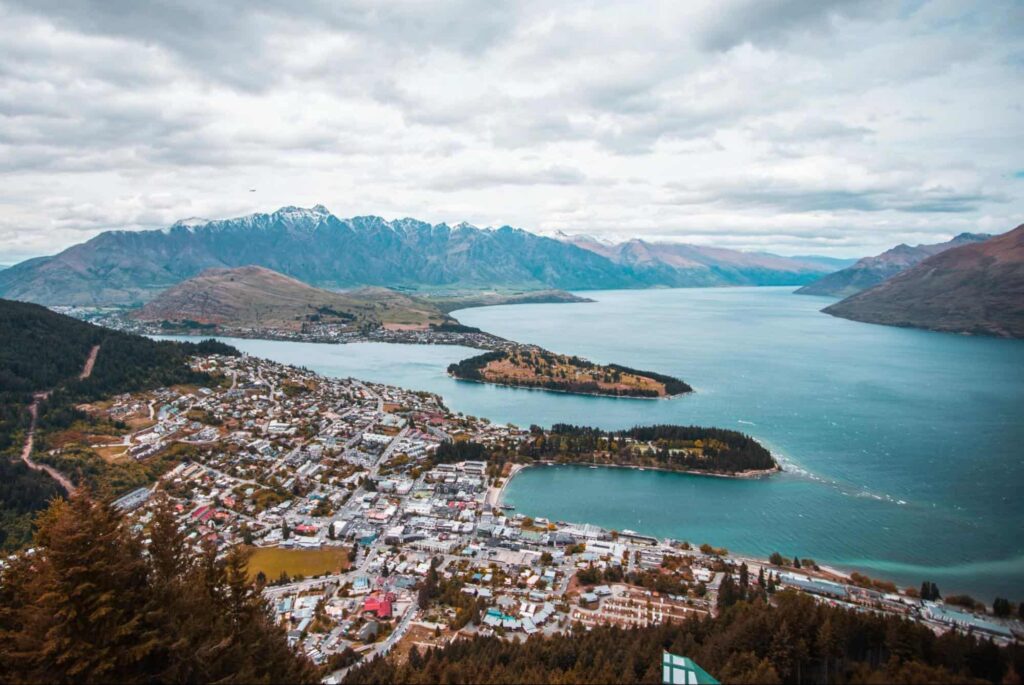
| Population | 39,153 |
| Unemployment rate | 1.1% |
| Safety Index | 82.10% |
| Median Income | $40,600 |
| Median Weekly Rent | $530 |
| Monthly Cost of Living | $4,698 |
| Median Internet Speed | 52.65 Mbps |
This city is known as the “adventure capital” of New Zealand because of its endless activities, world-class skiing, and hiking during winter and white-water rafting in summer. Despite this, Queenstown is often described as relaxed and laid back.
Queensland is a major tourist destination, therefore most of the jobs here are in the tourism sector. The weather is great too!
This city also boasts a high safety index, and low unemployment rate. So if you want a safe and beautiful place, Queenstown is the best for you!
5. Hamilton

| Population | 160,911 |
| Unemployment rate | 5.6% |
| Safety Index | 50.55 |
| Median Income | $30,200 |
| Median Weekly Rent | $350 |
| Monthly Cost of Living | $4,910 |
| Internet Speed | 180.66 Mbps |
Hamilton’s motto back in the nineties was “The City of the Future”, thus the locals dubbed the city as “Hamiltron” or “The Tron” for short. That motto is now coming to life as Hamilton’s current economic indicators are booming.
It even has a relatively low cost of living, making it ideal for families who are just starting out.
By the way, Hamilton is where the Hobbiton™movie set is located. For recreation, you can explore Raglan which is the surfing capital of New Zealand.
This city is also home of one of the top universities in New Zealand, the University of Waikato.
6. Dunedin

| Population | 126,255 |
| Unemployment rate | 4.3% |
| Safety Index | 79.40% |
| Median Income | $25,500 |
| Median Weekly Rent | $280 |
| Monthly Cost of Living | $4,819 |
| Median Internet Speed | 158.12 Mbps |
Dunedin, dubbed as “The Great Small City”, is the perfect place to raise a family. It is consistently ranked as one of the best places to live because of its high safety index and low cost of living.
Dunedin is a great fit for those looking for work-life balance. It is highly-rated by locals to have a very high quality of life.
There are a lot of employment opportunities in the medical field, agriculture, and food production in the city.
This city is also very near to iconic New Zealand destinations – the ski fields and wineries of Central Otago, the mountains of Aoraki Mt Cook, and the rugged Catlins coast.
This city is also home to one of the top universities in New Zealand, the University of Otago.
7. New Plymouth
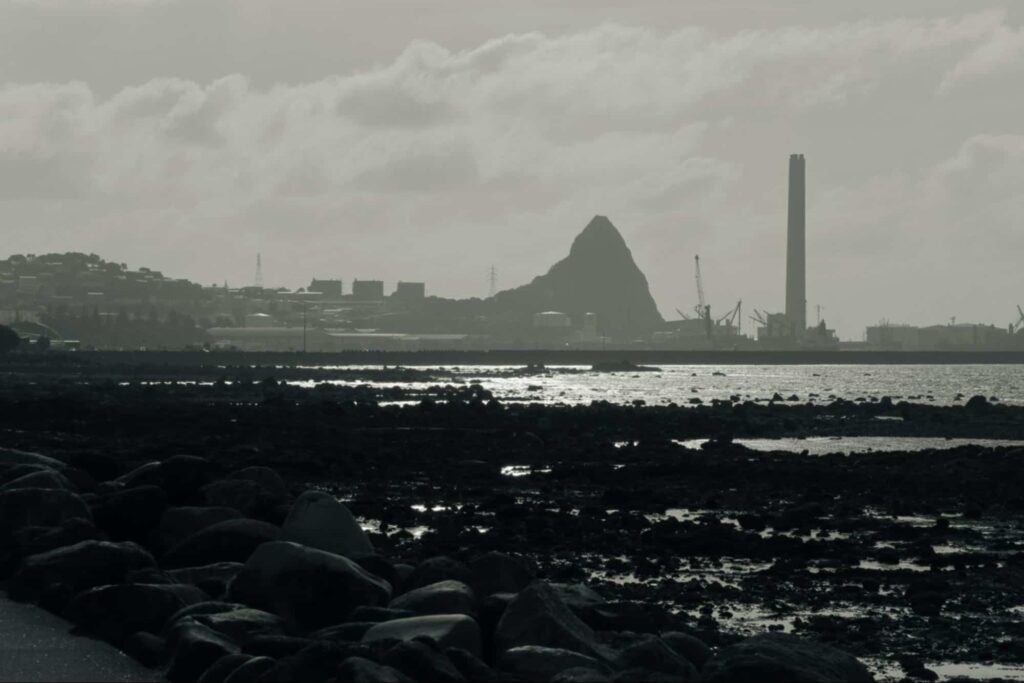
| Population | 80,679 |
| Unemployment rate | 3.8% |
| Safety Index | 59.96 |
| Median Income | $29,063 |
| Median Weekly Rent | $300 |
| Monthly Cost of Living | $4,774.73 |
| Median Internet Speed | 88.57 Mbps |
New Plymouth is a safe city with a low crime rate, reasonable housing costs, and a low unemployment rate. This must be why it’s considered one of the best cities to raise kids in New Zealand.
It also has a lot of good schools. Students here perform well in terms of university and entrance rates, which says a lot about the quality of education.
The local oil and gas industry makes for a thriving local economy, based on what we’ve seen. It’s also praised for its Coastal Cycleway and sustainability.
Plus, there are a lot of family-friendly restaurants and cafes here.
8. Nelson
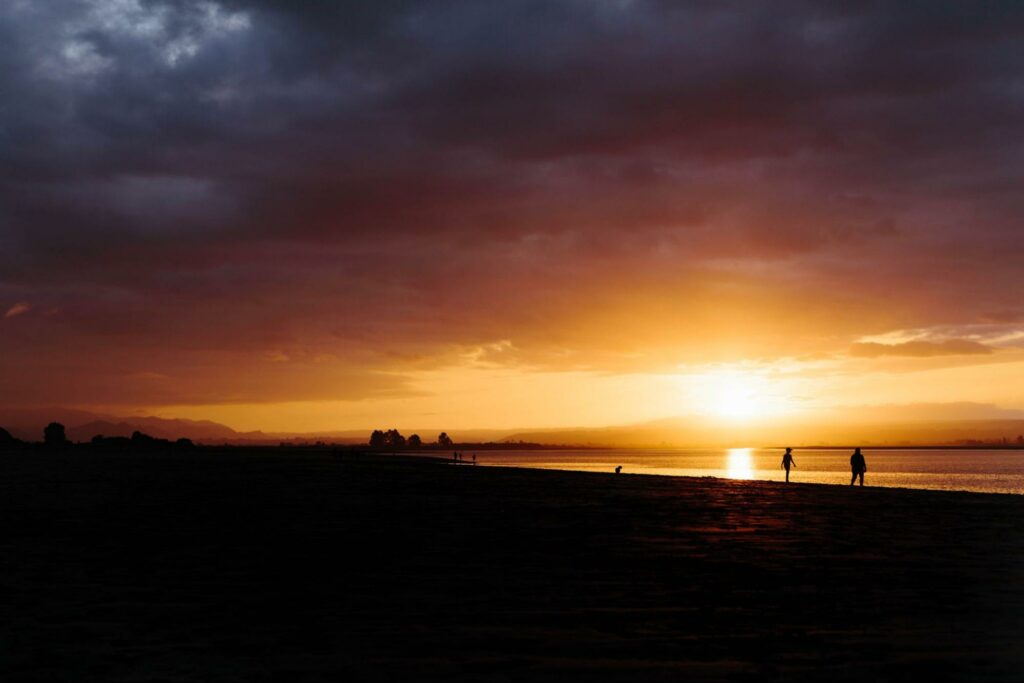
| Population | 52,900 |
| Unemployment rate | 1.7% |
| Safety Index | 62.02 |
| Median Income | $26,500 |
| Median Weekly Rent | $350 |
| Monthly Cost of Living | $ 5,650.54 |
| Median Internet Speed | 42 Mbps |
If you enjoy the sun and the outdoors, you’ll love it here. Nelson gets 2,500 hours of sunshine per year, making it an ideal place to bike, hike, and enjoy sports.
They have golden beaches and national parks that you can enjoy. The good weather also ensures you get access to good produce regularly at a fair price.
Aside from that, it has a lot of great schools to choose from. They have high levels of National Standard achievement and university entrance qualification levels.
There are also a lot of great markets, restaurants where you can enjoy freshly-caught seafood, and wineries here for you to enjoy.
9. Porirua

| Population | 61,000 |
| Unemployment rate | 5.5% |
| Safety Index | 55.56 |
| Median Income | $34,400 |
| Median Weekly Rent | $260 |
| Monthly Cost of Living | 4032.27 |
| Median Internet Speed | 205.63 Mbps |
We love how the local government here has made kids a priority in terms of future planning. There are a lot of resources for family wellbeing here because you can see a lot of projects geared towards that.
There are swimming pools, libraries, events, and other activities that children and their families can enjoy. There are also a lot of great restaurants with scrumptious food.
This city has reasonable housing prices and average cost of living, which we like. It’s great for families who are just starting out.
It also has plenty of fantastic schools your children can attend.
10. Invercargill
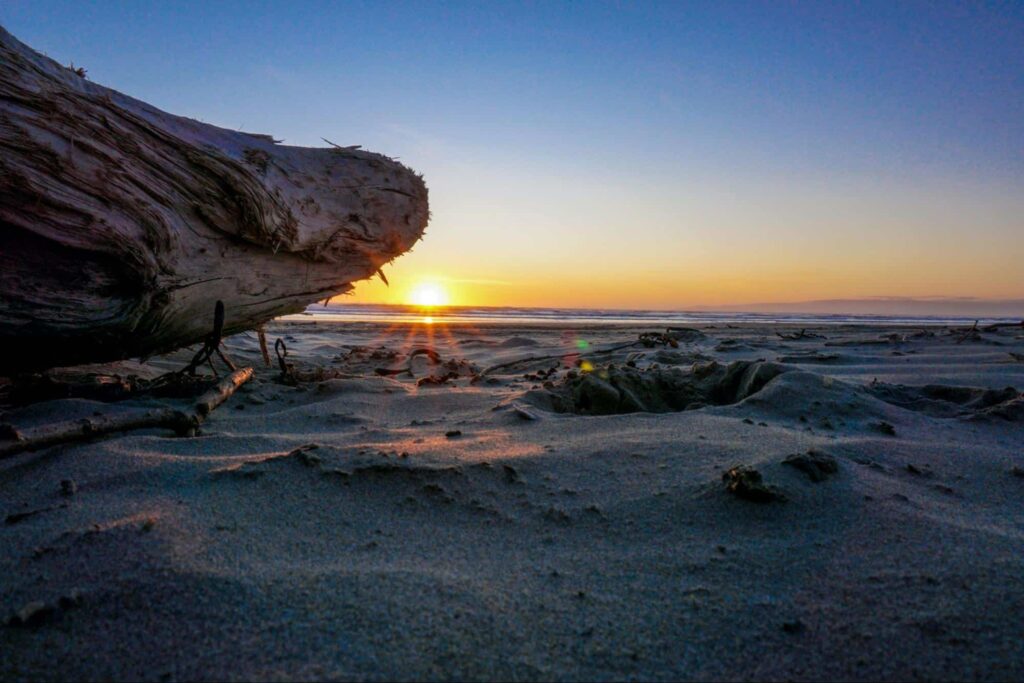
| Population | 54,204 |
| Unemployment rate | 3.8% |
| Safety Index | 50.25 |
| Median Income | $29,900 |
| Median Weekly Rent | $230 |
| Monthly Cost of Living | $5,016.56 |
| Median Internet Speed | 150.52 Mbps |
Invercargill is considered a great place for families because of affordable housing costs and low unemployment levels. They also have a high safety index and low crime rate.
Aside from that, their schools rank high in national standards and university entrance levels. Students can also choose to study in the Southern Institute of Technology.
Aside from that, the city is beautiful. There are a lot of conservation land and marine reserves here.
It has a lot of daylight hours so if you like the outdoors, you can enjoy biking, horse riding, and even skiing in the winter.



